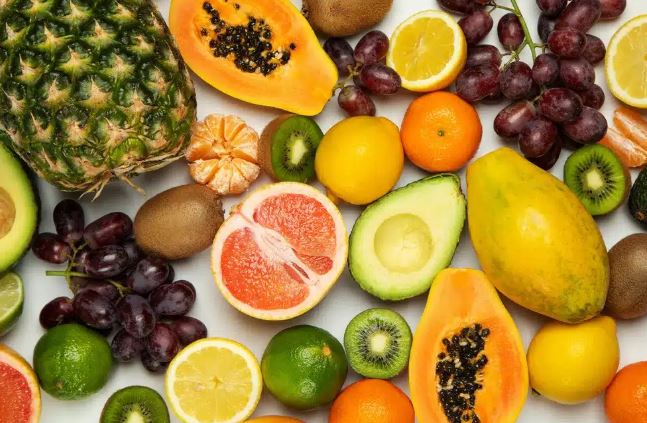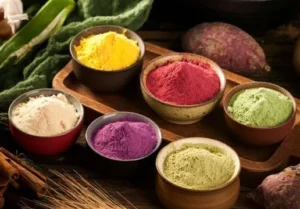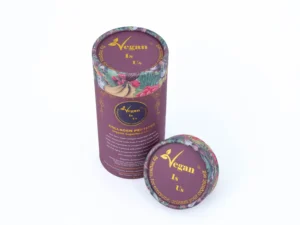Last updated on January 29th, 2025
Do Vegans Poop More? The Science Behind Bowel Movements on a Plant-Based Diet?
When transitioning to a vegan lifestyle, many people notice changes in digestion, often accompanied by more frequent bathroom visits. But is this anecdotal evidence supported by science? Let’s explore five key insights into whether vegans actually poop more, backed by scientific evidence explaining why.
1. Fibre Intake Plays a Huge Role
One of the most significant differences between a plant-based diet and an omnivorous diet is fibre intake. Research consistently shows that vegans consume considerably more dietary fibre than those who eat animal products. Fibre, found in fruits, vegetables, legumes, and whole grains, plays a crucial role in digestion by adding bulk to stool and accelerating intestinal transit time.
The average vegan consumes between 40-50 grams of fibre per day, compared to the 15-20 grams typical in a Western diet. This substantial difference means vegans are more likely to experience regular, well-formed, and frequent bowel movements. Soluble fibre helps retain water, softening stools, while insoluble fibre promotes movement through the digestive tract, reducing the likelihood of constipation.
2. A Healthy Gut Microbiome Thrives on Plants
A well-balanced gut microbiome is essential for optimal digestion, and plant-based diets foster a diverse and healthy gut microbiota. The beneficial bacteria in the gut ferment dietary fibre, producing short-chain fatty acids (SCFAs) like butyrate, which support bowel regularity and overall gut health.
Studies indicate that vegans have a higher abundance of gut-friendly microbes, including Bifidobacteria and Lactobacilli, compared to omnivores. This microbial diversity contributes to smoother digestion and more frequent bowel movements. Additionally, SCFAs play a role in reducing inflammation, enhancing gut barrier function, and preventing digestive disorders such as irritable bowel syndrome (IBS) and constipation.
3. Hydration and Water-Rich Foods Aid Digestion
Plant-based diets naturally include a variety of foods with high water content, such as cucumbers, watermelon, oranges, and leafy greens. These foods help hydrate the digestive system and soften stools, making them easier to pass.
Furthermore, vegans are often more mindful of their hydration levels, complementing their high-fibre intake with adequate water consumption. Fibre requires water to function effectively, so drinking plenty of fluids is essential for preventing bloating and constipation. In contrast, low water intake can cause fibre to harden in the digestive tract, leading to discomfort and sluggish digestion.
4. Avoiding Constipation-Inducing Foods
Another factor contributing to improved bowel regularity in vegans is the avoidance of foods that slow digestion. Dairy products, for example, contain casein, a protein that has been linked to constipation due to its binding effect in the intestines. Many people also experience lactose intolerance, which can lead to bloating, gas, and irregular bowel movements.
Vegan diets, particularly those incorporating Protein Peptides | Organic Superfood Blend, are free from dairy, processed meats, and artificial additives, making them naturally easier to digest. Without these common dietary culprits, the digestive system functions more efficiently, promoting regular and healthy bowel movements.
5. The Transition Period: What to Expect
If you’ve recently adopted a vegan diet, you may notice a temporary increase in bowel movements. This is completely normal and occurs as your body adjusts to higher fibre intake. During this transition phase, the digestive system adapts to processing larger amounts of plant-based foods, which can lead to softer stools and more frequent trips to the toilet.
Over time, the body finds its new rhythm, and bowel movements become regular without causing discomfort. If you experience bloating or mild digestive discomfort during this period, try gradually increasing fibre intake, staying hydrated, and consuming fermented foods such as sauerkraut, kimchi, or dairy-free yoghurt to support gut health.
Is More Frequent Pooping Healthy?
Regular bowel movements are a sign of good digestive health. Pooping frequently (without experiencing diarrhoea or discomfort) helps eliminate toxins, supports nutrient absorption, and promotes a balanced gut microbiome. As long as stools are well-formed and easy to pass, increased frequency is generally a positive indicator of gut function.
However, if bowel movements become excessively loose or occur too frequently, it may be beneficial to adjust fibre intake and monitor hydration levels. Consulting a nutritionist or dietitian can also provide personalised guidance for maintaining digestive balance.
The Verdict: Do Vegans Really Poop More?
The short answer is yes—vegans often poop more, and it’s a good thing! A plant-based diet, rich in fibre, water, and gut-friendly nutrients, supports healthy digestion and regular bowel movements. If you’ve noticed an increase in trips to the bathroom after going vegan, embrace it as a sign that your body is thriving on plant-based nutrition.
Key Takeaways:
- Increased fibre intake leads to more frequent bowel movements.
- A diverse gut microbiome enhances digestion and stool regularity.
- Hydration from plant-based foods softens stools and supports healthy elimination.
- Avoiding dairy and processed foods reduces constipation and bloating.
- Initial digestive adjustments are normal when transitioning to a vegan diet.
For more insights on vegan living, plant-based nutrition, and health tips, visit Veganisus. Whether you’re new to veganism or a seasoned plant-based eater, optimising digestion is key to feeling your best!







